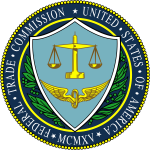Update: Online Tracking & Privacy Laws In The EU and US
Officials in Europe and the United States are responding to Internet users’ desires to disable ad tracking, but they’re taking two different approaches. European regulators are interesting in passing strict online privacy statutes, whereas the U.S. government and tech industry seem keen to keep online privacy regulations to a minimum.
What Is Online Tracking And Why Do People Argue It Invades Privacy?
The ability of ad companies to track users’ behavior while online is behavioral marketing. Tracking is accomplished through the use of “cookies.” Cookies are small pieces of data saved on a users’ computer. They have the ability to record which links you click and what sites the you visit while on the Internet.
Basically, targeted advertising enables a company to place their ads in view of an online visitor based on the likelihood that the user will purchase their product.
The Booming Business of Online Tracking
Companies report that the ability to track users’ online behavior has dramatically increased web ad sales. In fact, it’s so successful that the cost of implementing tracking technology has tripled over the past three years. In fact, according to Nugg.ad, L’Oreal has increased their effectiveness in reaching their ideal customer by 168% in 2011.
The European Union’s Legal Approach To Online Tracking – The ePrivacy Directive
However, in May 2011, EU regulators determined that tracking of online behavior should require explicit consent from users. The agreement is known as the ePrivacy Directive. The question now is how it will be accomplished.
The ePrivacy Directive does not provide user consent guidelines. However, it does specify that the use of cookies, unless necessary for the delivery of a service that is requested by the user, cannot be used or saved on a users’ computer.
The directive places the responsibility of implementing the execution on the individual EU member states. It also indicates that a “clear and comprehensive” understanding by the user must be acquired before the user’s data may be used for tracking and advertising purposes. In addition, limitations on cookies being stored on users’ machines for tracking purposes are also to be regulated.
Companies in the EU have a deadline of May 28 to comply with the new regulations. All the while, technical implementers are working to figure out how to implement the logistics of the requirements without using a multitude of pop-ups for consent verification. Technical companies tasked with working out the implementation details indicate that putting the regulations into practice is easier conceived than executed.
The United States’ Legal Approach to Online Tracking
Though the United States and the EU agree that users should have an opportunity to decide whether or not they want their online behavior to be tracked, the United States is favoring a more open approach. Instead of passing sweeping regulations, elected officials and tech companies seem to want a more “open” Internet, which allows for, in their view, more innovation.
Several tools are in development in the US intended to stop data gathering. However, many of these tools are being developed by companies supported by the very companies that seek to gather users’ online data – Walt Disney and Facebook, to name a few. As such, the efforts have been compared to a fox guarding the hen house.
There’s little doubt that online privacy is now an oft-mentioned issue. But it remains to be seen if standards and legislation will be developed that satisfy both business and individual interests
 New Online Privacy Laws In California
New Online Privacy Laws In California Online Privacy Law 2013: States Are Starting To Take Action
Online Privacy Law 2013: States Are Starting To Take Action Watchdogs Calling For Facebook Online Privacy Investigation
Watchdogs Calling For Facebook Online Privacy Investigation CALEA Amendment Could Mean Mandatory Electronic Backdoor For FBI
CALEA Amendment Could Mean Mandatory Electronic Backdoor For FBI The FTC Gets Serious about Online Privacy
The FTC Gets Serious about Online Privacy